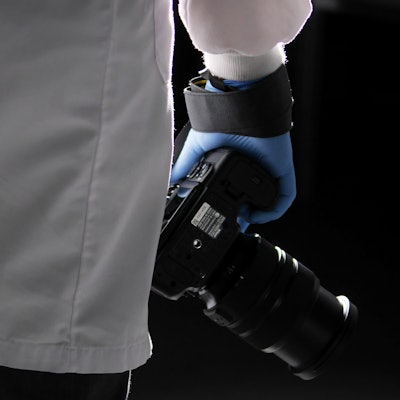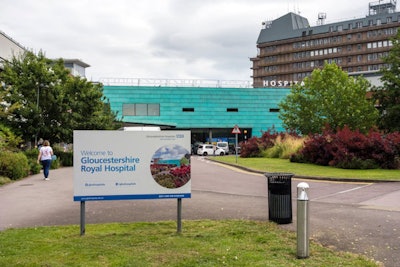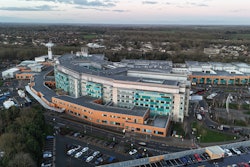
A U.K. coroner has blamed the death of a patient on serious understaffing in a radiology department and a national shortage of trainee posts. She has called for urgent action to prevent more fatalities and has sent her findings to the Royal College of Radiologists (RCR).
In a report posted online on 3 February 2023 by the Courts and Tribunals Judiciary website, Katy Skerrett, senior coroner for Gloucestershire, listed several areas of concern. These included "significant understaffing" at the radiology department of the Gloucestershire Royal Hospital, the shortage of radiology trainee posts in the U.K., and the expectation that the reporting of all scans, including nonurgent cases, will be completed within an hour.
 Gloucestershire Royal Hospital, Gloucester, England. Image courtesy of SFL Travel / Alamy Stock Photo.
Gloucestershire Royal Hospital, Gloucester, England. Image courtesy of SFL Travel / Alamy Stock Photo.Also, Skerrett was critical of a decision taken on cost grounds to delay the appointment of call handlers to triage calls to reduce the demands on radiologists' time. She has written to the chief executive of the Gloucestershire National Health Service (NHS) Trust to express these concerns and request action, and she has sent a copy of her findings to the RCR.
Missed fracture on CT
In her report, the coroner explained that Donald Charles Brown, 87, suffered a fall at home on 31 January 2021. He was taken to hospital and underwent a CT exam.
"No fractures were reported. Following further investigations, he was discharged home," she noted. "Following discharge Donald continued to experience neck pain and difficulty swallowing. He was readmitted to hospital on 26 February 2021 and was treated for aspiration pneumonia."
Another CT exam showed that he had suffered a displaced fracture of the C2 vertebra with spinal cord compression. "This injury had been sustained in his fall on 31 January. It was visible on the CT imaging taken on that day. However, it was not reported."
The severity of this injury probably led to his swallowing difficulties and caused aspiration pneumonia, the report continued. A neurosurgical opinion advised against an operation, and the patient's condition got worse and he died on 4 March 2021.
Skerrett concluded that the medical cause of death was "1A Aspiration pneumonia, 1B C1/C2 fracture dislocation." She has demanded a reply from the NHS Trust by 28th March 2023.
Reaction to coroner's report
It's an interesting case, but it is not clear why a missed fracture on CT can suddenly be ascribed to inadequate staffing and inadequate numbers of trainees, a consultant radiologist told AuntMinnieEurope.com.
"There must be a narrative behind this, it must have been part of the reasoning behind the miss. But without details it's hard to know," the source continued. "There is a shocking lack of radiologists in the U.K. and grossly inadequate numbers of trainees, given the ongoing expansion in work. But I don't quite understand how the coroner has taken this leap."
Many factors contribute to doctors missing findings, according to Dr. Catherine Mandel, MRI radiologist at Swinburne University of Technology, Melbourne, Australia.
These factors include: too many images to review and report; short report turnaround times, where it is not possible to look at everything and meet the deadline; constant interruptions; insufficient clinical information, including missing critical information; fatigue, especially with long work hours, inability to take breaks, and on-call/after-hours reporting; and bias ("with many referrals for extensive scans of patients with minimal risk and no abnormality present, we are programmed to expect to see nothing," she noted).
"We all go to work wanting to look after patients well and despite our best efforts, things go wrong," she told AuntMinnieEurope.com. "Understanding why errors happen and making changes to mitigate the risks is so important for our patients and for our own wellbeing."
Over the past week or so, the coroner's report has been discussed in professional chat rooms on the Doctors.net.uk Forum (site requires log-on).
An inspection report published on 7 October 2022 by the Care and Quality Commission (CQC) found that the safety record, responsiveness, and leadership at the Gloucestershire Royal Hospital "required improvement," although the CQC rated the hospital as "good" when it came to being "caring and effective."



















